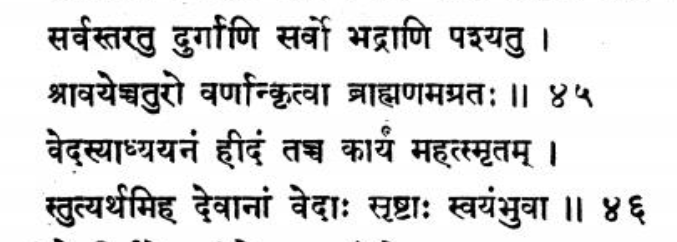Basic manners to be followed when food is served to you.
From Manusmṛti 2.54, translated by Sir Ganganatha Jha.
[1/3]
From Manusmṛti 2.54, translated by Sir Ganganatha Jha.
[1/3]

• • •
Missing some Tweet in this thread? You can try to
force a refresh













